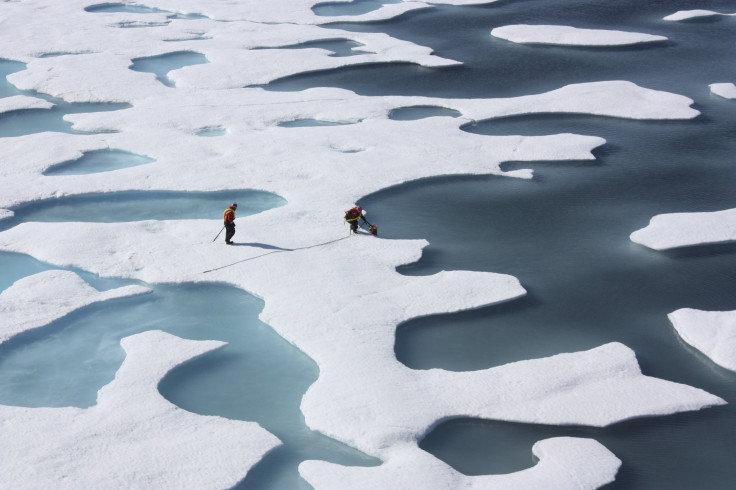Arctic Sea Ice Melting: Climate Change Means It Could All Be Gone In Two Years

Arctic sea ice may disappear much sooner than previously predicted and that melting could lead to dire consequences for the planet.
The new predictions come from Arctic sea ice expert Dr. Peter Wadhams, a professor of ocean physics at Cambridge University in the United Kindom who wrote a book on the subject. Wadhams predicts that sea ice could disappear within two years, according to media reports over the weekend.
Arctic sea ice melting poses a significant risk to the Earth's ability to reflect light and heat away from the planet. Ice, which is a bright surface, reflects the Sun’s rays back into space instead of absorbing the heat and trapping it. The dark ocean surface exposed when sea ice melts absorbs roughly 90 percent of the incoming sunlight (compared to the 80 percent reflection rate of the ice).
In an interview with Alternet, Wadhams said that the rate of change for sea ice has increased from 3 percent loss per decade to 8 percent per decade. There are many concerns about the loss of Arctic ice, he said.
“First, the loss from the shallow shelf areas north of Siberia is dangerous because it encourages emission of methane from the sea bed as the offshore permafrost melts,” Wadhams said. “Secondly, the loss from Baffin Bay and East Greenland in summer encourages warm winds over the Greenland ice sheet, which cause ice-sheet melt and accelerated sea level rise.”
With record breaking temperatures globally, Wadhams says that simply reducing carbon dioxide emissions won’t stop sea ice from melting. The best we can do is try to mitigate the problem. There’s already enough CO2 in the atmosphere to raise global temperatures.
“The only things we can do are to, first, put a sticking plaster on warming by use of geoengineering techniques to reflect more radiation—for example, marine cloud brightening—and second, to solve the problem properly by spending a lot of thought and energy developing a cost-effective method of direct air capture of CO2 from the atmosphere,” he said.
© Copyright IBTimes 2024. All rights reserved.






















